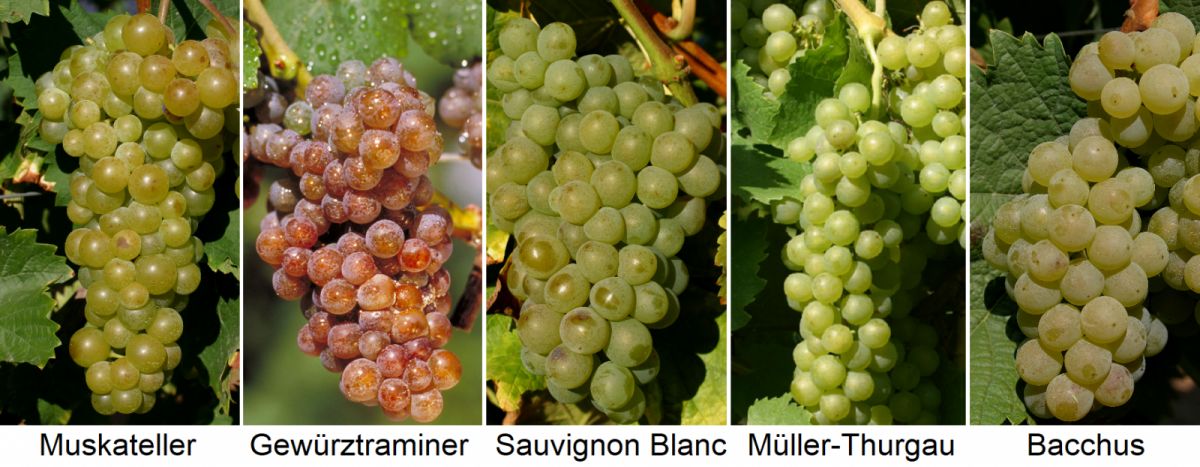Designation for grape varieties that have a particularly distinctive floral to spicy, very typical aroma. Some of the significant aromatic substances are already present in the berries (primary aromas) or are formed during grape processing or during/after fermentation(secondary aromas). Although they are only present in small quantities, they have a very intense odour and taste and are therefore relatively easy to identify, even for laypeople.

Flavourings
The typical flavourings of these varieties include terpenes (monoterpenes), methoxypyrazines (pyrazines) and thiols (mercaptans). Varieties characterised by terpenes (with 1 to 4 mg/l) are Muskateller varieties, Muskat-Ottonel, Morio-Muskat and Traminer (especially the Gewürztraminer variety) with primary and secondary aromas. These often have characteristic, varietal notes, namely musky, muscat and rose (floral) flavours. The varieties Bacchus, Sauvignon Blanc and Scheurebe are characterised by pyrazines and thiols with secondary aromas.

Classification / definition criteria
However, there are no clear and generally valid criteria for the definition of a bouquet variety, as this is not a "scientific" term. Some other varieties are also mentioned. These are, for example, Bouvier, Huxelrebe, Kerner, Müller-Thurgau, Perle, Riesling, Schönburger, Septimer, Siegerrebe, Silvaner and Würzer. Some of these also have higher levels of terpenes. Significantly, some of them are new varieties in which a Traminer (Gewürztraminer) was involved as a parent variety. See also under Vine systematics.
Flavours: Pixabay
Grape varieties: Ursula Brühl, Doris Schneider, Julius Kühn-Institut (JKI)
Voices of our members

The Wine lexicon helps me to keep up to date and refresh my knowledge. Thank you for this Lexicon that will never end in terms of topicality! That's what makes it so exciting to come back often.
Thorsten Rahn
Restaurantleiter, Sommelier, Weindozent und Autor; Dresden